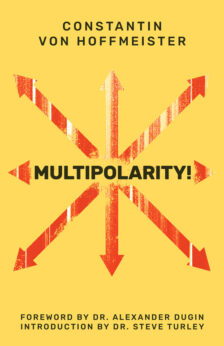Excerpt:
The fact that the ideology of human rights largely appears as an American ideology is logical under these conditions. It is no coincidence that the United States is simultaneously the biggest supporter of the liberal-capitalist societal model and that the central concepts of liberal legal philosophy became the theory of American capitalist practice — or, more precisely, the legitimising code of a signifier that is nothing other than the trade boom of the USA.
The predominantly biblical nature of the early American ideology of human rights proved to be a…







